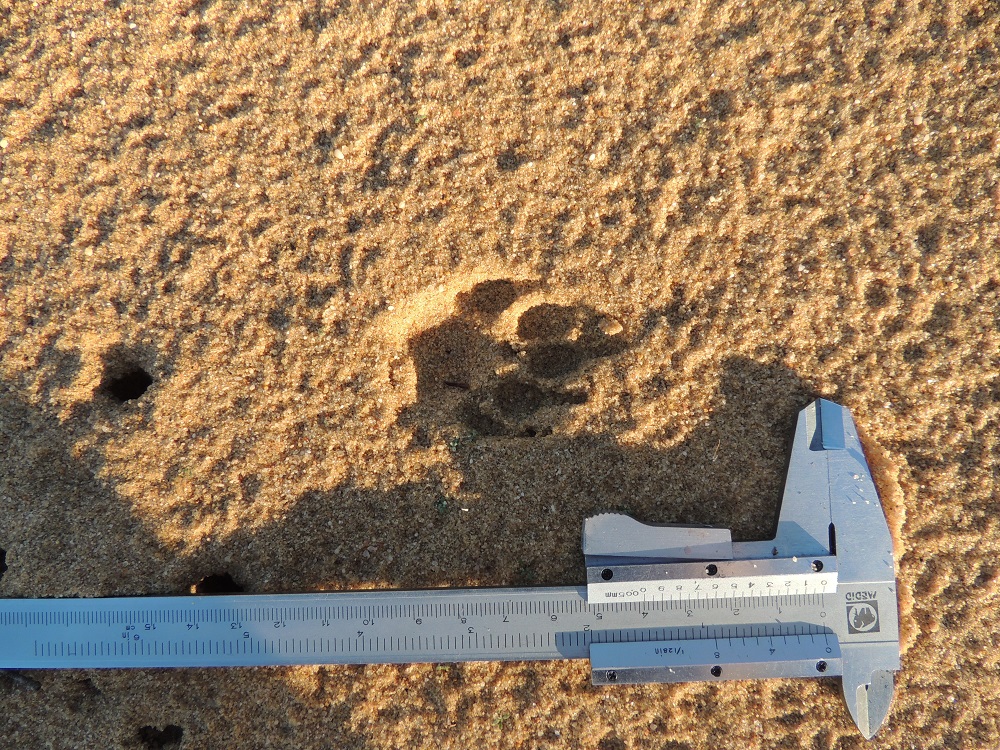The analysis of carnivore trends in Doñana National Park (DNP), led by members of the ICTS-RBD monitoring team, reveals that the populations of 5 species studied in the park have evolved differently over the last 15 years. Long-term studies on community composition and relative abundance are key tools in wildlife management and for biodiversity conservation. However, there are few such studies focusing on Mediterranean carnivores, especially in the Iberian Peninsula, a hotspot for mammalian biodiversity in Europe. In order to fill this gap, 15 years of carnivore monitoring data from the Doñana National Park were used to obtain population trends to discuss the evolution of carnivore populations.
The characteristics of Doñana, known for its sandy substrates and dunes (Photo: preparing a sandy track for the fingerprint surveys in DNP. Author: Francisco Carro), make it possible to use reliable and inexpensive methods such as fingerprint surveys (Cover photo: a Egyptian mongoose footprint in the sand observed during the surveys in DNP. Author: F. Carro), carried out every year after the first autumn rains.
The results showed that population trends differ among the different species of the Park, with the Red fox (Vulpes vulpes) being the only one that has seen its abundance increase in the last 15 years despite the population control exercised on this species in the Park. One of the most outstanding results was the Egyptian mongoose (Herpestes ichneumon) which trend was stable considering the interannual changes. This shows, at least for the population of Doñana, that the population of this carnivore does not tend to grow in the long term, which can be a first step to evaluate its future population situation in areas of recent expansion. Other species such as the European badger (Meles meles), also showed stable populations, being Doñana a priori more hostile to this species, which finds higher densities in Eurosiberian zones. The results of the Common genet (Genetta genetta), although inconclusive, show a slight decrease. Finally, the case of the Iberian lynx (Lynx pardinus), a species in clear recovery in the Iberian Peninsula, shows us that at the scale of the National Park and using this methodology, the population is in moderate decline, contrary to its global Peninsular situation. Diseases or decreased abundance of the European rabbit (Oryctolagus cuniculus) are considered as possible hypotheses to this result.
Referencia:
Jorge Sereno-Cadierno, Ramón C. Soriguer y Francisco Carro. Hedding light on long-term trends in Mediterranean carnivore populations: five species, one scenario, different responses. European Journal of Wildlife Research. https://doi.org/10.1007/s10344-023-01683-1


 Las altas temperaturas están provocando que las lagunas y las marismas de Doñana pierdan agua rápidamente
Las altas temperaturas están provocando que las lagunas y las marismas de Doñana pierdan agua rápidamente




